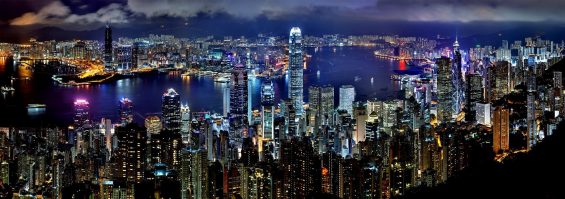
YES and NO. Before I explain this contradiction, let me say that I’ve spent a considerable amount of time in China working with entrepreneurs and running incubator programs, so I’ve gained insights into the country and its business culture. This has allowed me to see the differences between the startup ecosystems.
First, China’s economy, geography, culture, politics and history are fundamentally different from that of the United States. China was the world’s leading innovator for a thousand years, with the invention of everything from porcelain and gunpowder to paper currency. However, like all great empires, it missed a step or two, and others overtook it. But China is back in the game now, and it has more people than any country on earth and more potential for innovation than ever before in its history.
That said, China can never be California. Silicon Valley, as we know it today, was born out of the ethos of the 1960s. It was the free-thinking, mind-bending hippies who flooded into San Francisco and reshaped the culture. Luminaries like Steward Brand, Steve Jobs, Larry Brilliant, Douglas Engelbart and Ken Kesey injected an irrational optimism into the veins of this slumbering tech hub. The hippies brought a magic elixir to San Francisco that made everyone believe that anything is possible. This new thinking challenged the prevailing orthodoxy. The line between dreaming and doing disappeared. If you could imagine it, you could do it.
These psychedelic pioneers inspired a generation of scientists, engineers, designers and venture capitalists to create the most dynamic economy on the planet. Everyone drank the Kool-Aid, and out popped companies like MITS (with the Altair 8800), HP, Atari, Intel and Apple. The startup myth went viral capturing the imagination of likeminded dreamers from Belfast to Bangalore. Like moths drawn towards a dancing flame, entrepreneurs came fluttering in. Most of them wound up turning to ashes, but the energy they produced fueled the growth of the tech giants we know today.
This influx of brainpower and ideas is Silicon Valley’s greatest strength. It is what drives innovation. If you take the smartest, most ambitious people on the planet and concentrate them in a small geographic region, where everyone is told they will succeed, even if they fail a thousand times, it’s inevitable that great things will happen. Will China replicate this? No–at least not anytime soon. No place on earth can be like Silicon Valley. But that doesn’t mean China won’t innovate.
What’s stopped innovation in China is not a dearth of talent. With a billion people striving to get ahead, China has no lack of brainpower. What it needs is a reason to innovate. Copying has simply been too easy. Why invent something new, when you can borrow the idea, adapt it to your market, and reap the rewards? Copying is the best business model I know of. If people in Silicon Valley could copy, they would. In fact, they’d be crazy not to.
Because it was so easy to import ideas from Silicon Valley, most Chinese entrepreneurs didn’t bother to innovate. But now it’s not so easy. In fact, it’s brutally hard to copy and succeed. You can be sure that as soon as a good idea emerges anywhere in the world, scores of Chinese entrepreneurs pounce upon it and begin copying. So what are the odds that copying will work? Right now, it’s around 1 out of 100.
This is a blessing in disguise. The fact that copying no longer works, means Chinese entrepreneurs will be forced to innovate. And necessity is always the mother of invention. So I see a bright future for China as it innovates its way up the value chain. We already see this happening with Tencent, Huawei and Alibaba. Their products are as good, if not better, than many Silicon Valley equivalents.
That said, China won’t be able to innovate in the same way as Silicon Valley because it’s not the same beast. First, it’s a more homogeneous society. If you go to a startup event in China, nearly everyone is Chinese, while if you attend a similar event in Silicon Valley, it will be filled with entrepreneurs from all corners of the globe. At a typical Silicon Valley event, you’ll be hard pressed to find one or two people actually born in the Bay Area. This diversity in thought, culture, mindset and experience is what enables Silicon Valley to “think different!”
Despite a lack of diversity, China does possess a magic bullet. It has access to a huge market with the ability to transform a tiny startup into a multibillion-dollar juggernaut practically overnight. Like Silicon Valley, China also has vast amounts of capital and a highly educated workforce. To top it off, the Chinese are extremely hardworking and driven to succeed. This combination means that China will continue to produce blockbuster startups for years to come, and with each of these blockbusters will come innovation.
Increasingly, we’ll see world-changing, radical innovation coming from startups, as well as incremental innovation from more mature players, like Baidu, Alibaba and Tencent. The result will be more innovation across the board as China continues its steady climb up the value chain.





